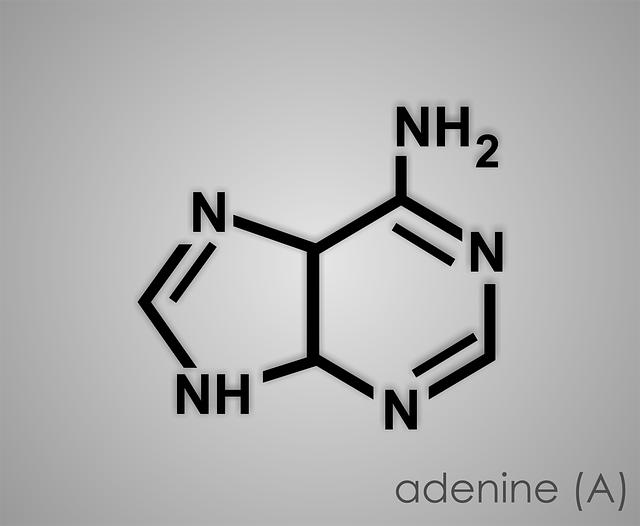Gout Guide: Navigating Whiskey’s Impact on Gout

Hey there, fellow gout warriors! If you’ve found your way to this article, chances are you’re pretty familiar with that excruciating pain known as gout. And what’s worse than dealing with a gout flare-up? Dealing with the endless debates and conflicting information about what you can and can’t enjoy in your favorite whiskey glass. Well, worry no more, my friends! In this handy gout guide, we’ll navigate the murky waters of whiskey’s impact on gout, bringing you expertise, knowledge, and a dash of much-needed clarity. So, sit back, pour yourself a dram, and let’s uncover the truth about whiskey and its relationship with our arch-nemesis: gout.
1. Understanding Gout: A Comprehensive Overview of the Disease
Gout, the excruciatingly painful form of arthritis, is a condition that affects countless individuals worldwide. This comprehensive overview will delve into the intricacies of this debilitating disease, shedding light on its causes, symptoms, and available treatment options.
When it comes to managing gout, understanding the impact of certain dietary choices is essential. One particular topic of interest is the role that whiskey plays in triggering gout attacks. Many gout sufferers often wonder whether indulging in their favorite drink could worsen their symptoms.
While there isn’t a definitive answer to this question, it is important to recognize that whiskey, like other alcoholic beverages, contains purines, which are known to increase levels of uric acid in the body. As we know, elevated uric acid is the primary cause of gout. Therefore, it is wise for individuals with gout to monitor their consumption of whiskey and other alcoholic beverages, as excessive intake may contribute to flare-ups.
To help you make informed decisions, here are some key points to consider when it comes to whiskey and gout:
-
Moderation is key: As with anything in life, moderation is crucial. Enjoying an occasional glass of whiskey should not significantly impact your gout, but excessive consumption can certainly pose a risk.
-
Hydration is essential: Drinking plenty of water while consuming whiskey can help flush out excess uric acid, reducing the likelihood of a gout attack. Aim to drink at least eight glasses of water a day.
- Consider your purine intake: Besides alcohol, certain foods are also high in purines, exacerbating gout symptoms. Make sure to maintain a balanced diet and limit your intake of purine-rich foods such as organ meats, seafood, and some vegetables.
Ultimately, understanding how whiskey affects gout is a matter of personal observation and individual tolerance. It is always advisable to consult with your healthcare provider or a registered dietitian to determine the best dietary plan that suits your specific needs. Remember, taking control of your lifestyle choices can play a pivotal role in managing and reducing the frequency of gout attacks. Stay empowered and make informed decisions for a more comfortable life with gout.
2. Unraveling the Connection Between Whiskey and Gout Flares: What Science Tells Us
For those who suffer from gout, understanding triggers and managing flare-ups is essential to maintaining a good quality of life. One potential trigger that has long been debated is the consumption of whiskey. Let’s delve into the scientific research to shed some light on the relationship between whiskey and gout.
1. Purine Content: Whiskey is made from fermented grains, and purines are naturally present in these grains. Purines are broken down into uric acid, which is the primary culprit behind gout flares. However, the purine content of whiskey is relatively low compared to certain seafood and meats, making it less likely to cause gout flare-ups in moderate consumption.
2. Alcohol and Uric Acid Levels: While whiskey contains purines, its alcohol content can also influence uric acid levels in the body. Alcohol inhibits the excretion of uric acid by the kidneys, leading to elevated levels in the blood and potentially triggering gout attacks. It’s important to note that excessive or binge drinking of whiskey can significantly increase the risk of gout flares.
3. Individual Sensitivities: Every individual’s body chemistry reacts differently to various foods and beverages. Some gout sufferers may experience flare-ups after consuming even small amounts of whiskey, while others may not be affected at all. It is crucial for individuals to monitor their own reactions and consult with a healthcare professional if necessary.
When it comes to whiskey and gout, moderation is key. Enjoying a glass or two of whiskey occasionally is unlikely to cause significant harm for most gout sufferers. However, it’s essential to listen to your body and make informed choices based on your individual sensitivities and medical advice. By understanding the science behind whiskey’s impact on gout, you can navigate this particular trigger more effectively and continue to savor your favorite spirit responsibly.
3. Moderation is Key: How Much Whiskey is Safe for Gout Sufferers?
Gout is a painful form of arthritis that occurs when the body is unable to properly remove uric acid from the blood. This build-up of uric acid leads to the formation of urate crystals, which can cause severe inflammation and pain in the joints. One common question that gout sufferers often ask is how much whiskey is safe to consume without triggering a gout flare-up.
When it comes to whiskey and gout, moderation is key. While it is important to consult with your healthcare provider for personalized advice, here are some general guidelines to keep in mind:
- Limit your intake: It is recommended that gout sufferers limit their alcohol consumption to moderate levels. This means no more than one drink per day for women and no more than two drinks per day for men.
- Choose your whiskey wisely: Not all whiskies are created equal when it comes to their impact on gout. Some whiskies have higher levels of purines, which are compounds that can increase uric acid levels in the body. Opt for lower-purine options like bourbon or rye whiskey.
- Stay hydrated: Drinking plenty of water alongside your whiskey can help flush out excess uric acid from your system. Aim to drink at least 8 glasses of water per day.
Keep in mind that these guidelines may vary depending on your individual circumstances and overall health. It’s always best to work with a healthcare professional to develop a personalized plan that takes into account your specific needs and medical history.
4. The Role of Purines: Exploring Whiskey’s Purine Content and its Impact on Gout
When it comes to enjoying a glass of whiskey, there’s much more to consider than just the flavor profile and smoothness. If you suffer from gout, a painful form of arthritis, understanding the role of purines found in whiskey is crucial. Purines are natural substances found in certain foods and drinks that can increase the levels of uric acid in the body, leading to gout flare-ups.
Whiskey, like many alcoholic beverages, contains varying amounts of purines. However, it’s essential to note that the impact on gout can differ from person to person. Some individuals may experience gout attacks after consuming whiskey, while others may not notice any significant effects. It all depends on your body’s ability to metabolize purines and clear uric acid efficiently.
If you’re concerned about your whiskey consumption and its potential impact on gout, here are a few key points to keep in mind:
- 1. Moderation is key: While completely avoiding whiskey may not be necessary, it’s crucial to consume it in moderation. Limiting your intake can help reduce the likelihood of gout attacks.
- 2. Watch your purine intake: Whiskey is not the sole source of purines in your diet. Keep an eye on other high-purine foods like organ meats, shellfish, and certain vegetables to help manage uric acid levels.
- 3. Stay hydrated: Proper hydration is essential for gout sufferers. Make sure to drink plenty of water while enjoying whiskey to help flush out excess uric acid.
- 4. Consult your healthcare professional: If you have gout or suspect you might be prone to it, it’s always wise to consult with your healthcare professional. They can provide personalized advice and recommendations based on your specific situation.
Remember, everyone’s body reacts differently to purines and whiskey. Being attentive to your individual triggers and maintaining a balanced lifestyle can help you navigate the impact of whiskey on gout. Cheers to enjoying whiskey responsibly without sacrificing your health and well-being!
5. Mixing it Right: Gout-Friendly Whiskey Cocktails to Savor
When it comes to enjoying a good drink while dealing with gout, it’s essential to make informed choices. Whiskey, a timeless classic, might leave you wondering about its impact on gout. Fear not, fellow whiskey enthusiasts, as we guide you through the world of gout-friendly whiskey cocktails that are sure to tantalize your taste buds without triggering a painful flare-up.
Before we dive into these delightful concoctions, let’s briefly explore why whiskey can be a better choice for individuals with gout. Unlike beer and certain spirits, whiskey contains minimal purines, which are responsible for the production of uric acid in the body. By minimizing purine intake, we can reduce the risk of gout attacks. So, let’s raise our glasses and explore these expertly crafted whiskey cocktails that are both delicious and safe for those of us with gout.
1. Whiskey Ginger Splash:
A refreshing blend of whiskey, ginger ale, a splash of lime juice, and a garnish of fresh mint. This zesty cocktail is not only invigorating for your taste buds but also light on the purines. The ginger ale provides a delightful effervescence, while the tangy lime juice adds a citrusy twist to complement the smoothness of the whiskey. Don’t forget to muddle in some fresh mint leaves for that extra dash of freshness.
2. Bourbon Berry Smash:
This delightful creation combines the deep flavors of bourbon with the sweetness of juicy berries. Muddle some fresh strawberries and blueberries to release their vibrant colors and natural sweetness. Add a touch of simple syrup, a splash of lemon juice, and a sprig of rosemary for aromatics. Shake it all up with ice, strain into a glass, and savor the exquisite blend of rich bourbon and fruity goodness.
6. Unique Recommendations for Gout Sufferers: Adding a Twist to Whiskey Enjoyment
Are you a whiskey lover who also suffers from gout? If so, you may be wondering how you can still enjoy your favorite spirit without triggering a painful flare-up. Luckily, there are some unique recommendations that can add a twist to your whiskey enjoyment while minimizing the impact on your gout.
1. Dilute Your Whiskey: Instead of sipping your whiskey neat, consider diluting it with a splash of water or an ice cube. This not only helps to mellow the flavors and make it more enjoyable, but it can also help to reduce the concentration of purines, which are known to trigger gout attacks.
2. Choose Low Purine Whiskeys: Some whiskeys have lower purine content than others, making them a better choice for gout sufferers. Opt for lighter, less aged whiskeys such as Irish whiskey or bourbon, as they generally have fewer purines than darker, heavily aged options like scotch.
3. Stay Hydrated: Alcohol can dehydrate the body, which can potentially worsen gout symptoms. Make sure to drink plenty of water alongside your whiskey to stay hydrated and flush out excess uric acid, which is a key culprit in gout flare-ups.
7. Beyond Whiskey: Alternative Alcoholic Beverages for Gout Sufferers
If you’re a gout sufferer who loves indulging in the occasional drink, you may have wondered about the impact of whiskey on your condition. While whiskey is known for its rich flavors and smooth finish, it’s important to be aware of how it can affect gout symptoms. However, fear not! There are alternative alcoholic beverages that can be enjoyed without fear of triggering a gout flare-up.
One option for gout sufferers is to turn to clear spirits such as vodka or gin. These spirits have lower purine content compared to whiskey, making them a safer choice for those prone to gout attacks. Vodka and gin also offer a wide variety of mixers and flavors, allowing you to experiment with different combinations and find a drink that suits your taste buds.
Another alternative to whiskey for gout sufferers is light beer. Light beers generally have lower alcohol content and are made with less malt, which means they contain fewer purines. This makes them a better choice for those with gout, as excessive purine consumption can increase your risk of flare-ups. However, moderation is key, as even light beer can still contribute to dehydration, which is not favorable for gout sufferers.
In conclusion, while whiskey may not be the best choice for individuals with gout, there are plenty of other options available. Clear spirits like vodka and gin, as well as light beers, can be enjoyed in moderation without worsening gout symptoms. Remember to always drink responsibly and listen to your body, and you’ll be able to navigate the world of alcoholic beverages while keeping your gout in check. Cheers!
8. Beyond Alcohol: Other Gout Triggers and How to Avoid Them
When it comes to managing gout, most people think of alcohol as the primary culprit. However, there are several other triggers that can cause flare-ups and worsen your symptoms. It’s important to understand these triggers and learn how to avoid them to effectively navigate the challenges of gout.
1. Purine-Rich Foods
Purines are compounds found in certain foods that break down into uric acid in the body. Therefore, consuming foods high in purines can lead to increased uric acid levels and trigger gout attacks. Some purine-rich foods to limit or avoid include:
- Organ meats like liver, kidney, and sweetbreads
- Seafood like anchovies, sardines, and mussels
- Game meats like venison and rabbit
- Some vegetables like mushrooms and asparagus
2. Fructose
Studies have shown that fructose, a type of sugar found in high amounts in sugary beverages and processed foods, can increase uric acid levels and contribute to gout problems. Limiting your intake of sugary drinks, such as soda and fruit juices, as well as processed foods like candy and desserts, can help prevent gout flares.
3. Dehydration
Staying properly hydrated is essential for managing gout. Dehydration can lead to higher concentrations of uric acid in the blood, increasing the risk of gout attacks. Make sure to drink plenty of water throughout the day and limit your intake of sugary and alcoholic beverages, which can further dehydrate your body.
9. Navigating Gout Flares: Practical Tips for Managing Symptoms While Enjoying Whiskey
When it comes to enjoying a glass of whiskey, gout sufferers often find themselves treading carefully. The high purine content in this beloved spirit can trigger painful gout flares, but there are ways to navigate this challenge without giving up the pleasure of sipping on your favorite whiskey. Here are some practical tips to help you manage gout symptoms while still indulging in a glass or two:
- Stay hydrated: Drinking plenty of water before and after enjoying whiskey can help dilute your urine and lower uric acid levels, reducing the risk of gout attacks.
- Moderation is key: While it may be tempting to pour yourself another glass, remember to drink whiskey in moderation. Limiting your consumption can lessen the chances of a gout flare-up.
- Be selective with your whiskey: Different types of whiskey have varying levels of purines. Opt for lower-purine options like bourbon or scotch, and avoid high-purine choices like port wine cask-finished whiskeys.
Remember, it’s essential to consult with your healthcare provider about your specific situation and any dietary restrictions you may have due to gout. They can provide personalized advice tailored to your needs. So, toast to good health with these tips in mind, and savor your whiskey with peace of mind.
10. Seeking Professional Guidance: Consulting a Healthcare Provider for Personalized Gout and Whiskey Advice
When it comes to managing gout, seeking professional guidance is key. Consulting with a healthcare provider can provide you with personalized advice on how whiskey affects your condition. While there is no one-size-fits-all answer, a healthcare professional can help guide you in understanding whiskey’s impact on gout and help you make informed decisions.
During a consultation with a healthcare provider, they can assess your individual health status, including your current gout symptoms and any other relevant medical conditions. They can provide personalized recommendations on whether consuming whiskey is safe for you and how much you can indulge without triggering a gout flare-up.
Additionally, a healthcare provider can also offer guidance on how to incorporate whiskey into a gout-friendly lifestyle. They might suggest limiting your intake, avoiding excessive drinking, and balancing it with a healthy diet and lifestyle choices conducive to managing gout effectively. Remember, moderation and personalized guidance can be the key to enjoying your favorite whiskey while still taking care of your gout.
As we bring this gout guide to a close, I hope that you have found the information helpful and enlightening. Navigating the impact of whiskey on gout can be a challenging task, but armed with knowledge and understanding, you can make informed decisions about your health and lifestyle choices.
Remember, moderation is key. While whiskey may trigger gout flare-ups for some individuals, it doesn’t necessarily mean you have to completely eliminate it from your life. By being mindful of your consumption and being aware of your own body’s responses, you can still savor the occasional glass of your favorite spirit without compromising your health.
Consulting with your healthcare provider is always a wise decision. They can provide tailored advice and guidance based on your individual circumstances, taking into account factors such as your current health status, medications, and overall dietary habits.
And of course, it’s important to remember that gout management is not just about whiskey, but rather involves a holistic approach to your overall health. Maintaining a balanced diet, engaging in regular physical activity, and managing other risk factors such as obesity and high blood pressure are all key components of a gout-friendly lifestyle.
As you embrace this knowledge and continue your journey to manage and prevent gout, let it empower you. You now have the tools to make informed choices and take control of your health. Keep exploring, keep learning, and remember that you are not alone in this journey.
Here’s to a life of balance, wellness, and enjoying life’s pleasures responsibly, whether that includes a glass of whiskey or not. Cheers!















